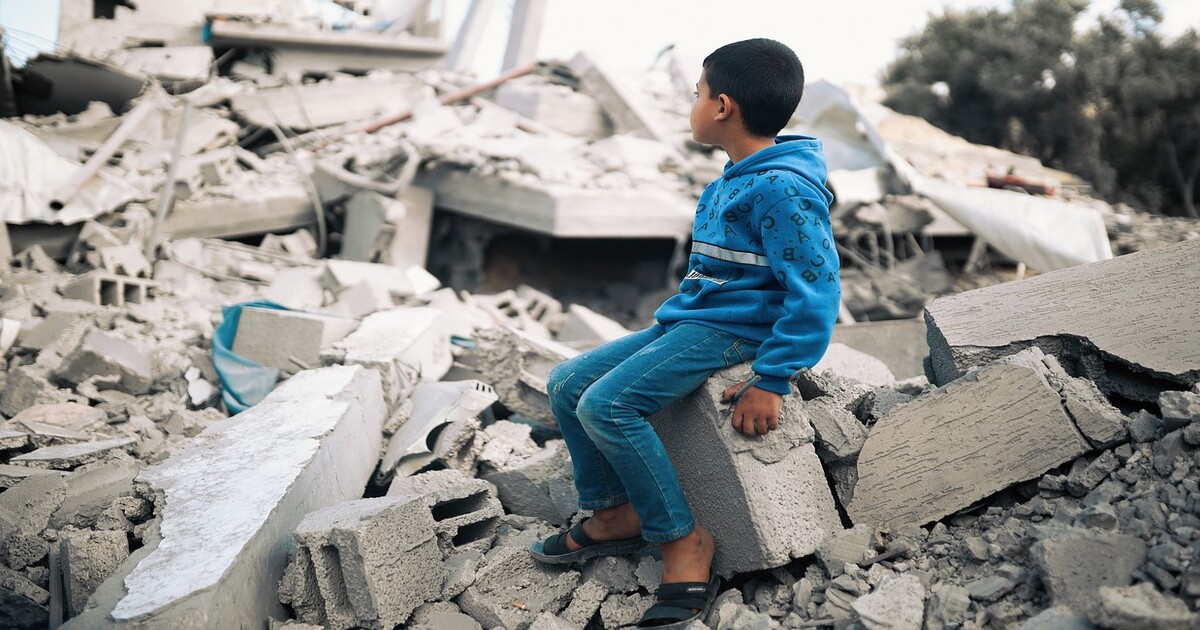Gaza: Dividing the Wheat From the Chaff Among Religious Leaders
The Gaza war constitutes a litmus test for Muslim and Jewish religious leaders on whether they can rise above the fray and adopt humanitarian and morally defendable positions.
December 11, 2023

A Strategic Assessment Memo (SAM) from the Global Ideas Center
You may quote from this text, provided you mention the name of the author and reference it as a new Strategic Assessment Memo (SAM) published by the Global Ideas Center in Berlin on The Globalist.
Hamas’ October 7 attack on Israel has not just divided Muslim political leaders. It has also solicited diverse responses from religious figures and institutions, reflecting deeper divisions about what Islam stands for in the 21st century.
At the core of the differences is the ability and willingness to empathize with innocent victims on both sides of the Israeli-Palestinian divide. This remains true even if the focus is on the carnage caused by Israel’s assault on Gaza, the West’s double standards and the international community’s impotence in imposing a long-term halt to the fighting.
A mirror image
The divide is mirror imaged among Israelis and Jews, many of whom have little sympathy for the extreme suffering of innocent Palestinian civilians.
To be sure, a majority of Muslim religious leaders believe that the Hamas attack stemmed from decades of occupation of Palestinian lands conquered during the 1967 Middle East war. And they believe it stemmed from Israeli policies designed to repress Palestinian resistance and thwart resolving the Israeli-Palestinian conflict by establishing an independent Palestinian state alongside Israel.
Many also argue that the indiscriminate Israeli bombing and ground offensive in Gaza that has killed an estimated 18,000 Gazans, injured more 49,000 others and destroyed infrastructure needed for the basics of life overshadows the brutality of the Hamas attack that caused the death of 1,200, mostly civilian Israelis.
The Muslim spectrum
The divide among Muslim religious leaders and scholars is evident in the response of two poles of the spectrum of Muslims who define themselves as moderate.
The spectrum ranges from religious leaders and scholars who advocate reform of Islamic jurisprudence to remove supremacist and discriminatory clauses in Sharia and political pluralism, to religious figures and institutions aligned with autocrats – some of whom favor greater social freedoms, but repress dissent and oppose religious law reform.
The diversity in “moderate” interpretations of Islam reflects a struggle to define what moderate Islam means in the 21st century. It also echoes the divide between moderate and more militant expressions of the faith that run the gamut from Turkish President Recep Tayyip Erdogan to Iran to jihadists.
With the wanton killing of civilian Israelis in its October 7 attack, Hamas – an Islamist group inspired by the Muslim Brotherhood that cloaks its nationalism in a religious mantle – has blurred the lines between moderates and more militant expressions of Islam.
The need for reform
The muddling of the different perspectives highlights the need for reform of Muslim religious jurisprudence to ensure compliance with international humanitarian law and deprive militants of the ability to find legitimization in Sharia.
The contrast in responses to the Gaza war by Nahdlatul Ulama, the world’s largest and most moderate, Indonesia-based Muslim civil society movement, and Al-Azhar, a Cairo-based, 1,053-year-old citadel of Islamic learning, spotlights the muddle.
In a statement calling for a “just” resolution of the Israeli-Palestinian conflict, Nahdlatul Ulama urged that religious inspiration — including the values of universal love and compassion, human fraternity and justice — be brought to the forefront of public awareness at all times, to help resolve conflict at every level of society, from the grassroots to the corridors of state power.
The statement called on Muslims “to collectively pray for the souls of all who have perished in the escalating (Israeli-Palestinian) violence.”
It further advocated that “people and governments everywhere…refrain from weaponizing identity or appealing to religion to fuel hatred and hostility, including in relation to the conflict and violence between Israel and Palestine.”
Following up on the statement, Nahdlatul Ulama has invited Muslim and non-Muslim religious authorities for a summit to discuss “religion’s role in addressing Middle East violence and threats to a rules-based international order.”
The role of religion in Middle East violence
By contrast Al Azhar, in its statement “proudly salut(ed) the efforts of the resistance of the proud Palestinian people.” It offered “sincere condolences” to Palestinians “who were martyred in order to defend their homeland and nation” with no mention of innocent Israelis killed.
Al Azhar’s Global Fatwa Center issued a religious opinion echoing Hamas’ assertion that there are no innocent Israelis, a mirror image of Israeli statements that all Gazans are terrorists and supporters of Hamas.
“The term ‘civilian’ does not apply to the Zionist settlers on the occupied land. Rather, they are occupiers of the land who usurp rights, disregard the prophets’ ways and attack the holy sites in historic Jerusalem,” the fatwa said.
It was unclear whether the fatwa was referring to settlers on Palestinian land conquered by Israel during the 1967 Middle East war, or defined all Israeli Jews as settlers.
Endorsing Hamas
Endorsing the Hamas attack, various senior Al Azhar clerics described Jews as “the cursed descendants of apes and pigs.”
At no point did a stream of other official Gaza-related Al Azhar statements and declarations by individual scholars denounce the killing of innocent civilians irrespective of religion, race or creed.
Hence, the Gaza war has evoked human beings’ most destructive instincts – survival, anger, fear, despair and vengeance – on both sides of the Israeli-Palestinian divide.
Conclusion
The Gaza war constitutes a litmus test for Muslim and Jewish religious leaders on whether they can rise above the fray and adopt humanitarian and morally and ethically defendable positions. So far, they have largely failed the test.
Among Muslims, the contrast between Al-Azhar and Nahdlatul Ulama’s respective approaches to the Gaza war is Exhibit A.
The contrast spotlights the essence of a battle for the soul of Islam that separates the wheat from the chaff in a competition between multiple players wanting to be seen as the beacon of Muslim moderation.
Takeaways
Hamas’ October 7 attack on Israel has not just divided Muslim political leaders. It has also solicited diverse responses from religious figures and institutions, reflecting deeper divisions about what Islam stands for in the 21st century.
The Gaza war constitutes a litmus test for Muslim and Jewish religious leaders on whether they can rise above the fray and adopt humanitarian and morally defendable positions. So far, they have largely failed the test.
The October 7 attack by Hamas, an Islamist group inspired by the Muslim Brotherhood that cloaks its nationalism in a religious mantle, has blurred the lines between moderates and more militant expressions of Islam.
The Gaza war has evoked human beings’ most destructive instincts – survival, anger, fear, despair and vengeance – on both sides of the Israeli-Palestinian divide.
The muddling of the different perspectives highlights the need for reform of Muslim religious jurisprudence to ensure compliance with international humanitarian law and deprive militants of the ability to find legitimization in Sharia.
Al Azhar’s Global Fatwa Center issued a religious opinion echoing Hamas’ assertion that there are no innocent Israelis, a mirror image of Israeli statements that all Gazans are terrorists and supporters of Hamas.
Senior Al Azhar clerics described Jews as “the cursed descendants of apes and pigs."
At no point did Al Azhar statements and declarations by individual scholars denounce the killing of innocent civilians irrespective of religion, race or creed.
A Strategic Assessment Memo (SAM) from the Global Ideas Center
You may quote from this text, provided you mention the name of the author and reference it as a new Strategic Assessment Memo (SAM) published by the Global Ideas Center in Berlin on The Globalist.
Read previous

Global Cuisine
In Defense of Carrots
December 9, 2023

